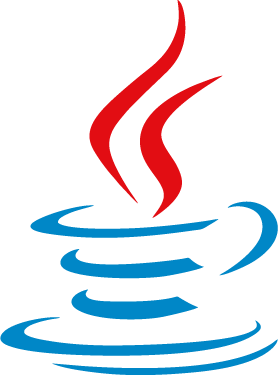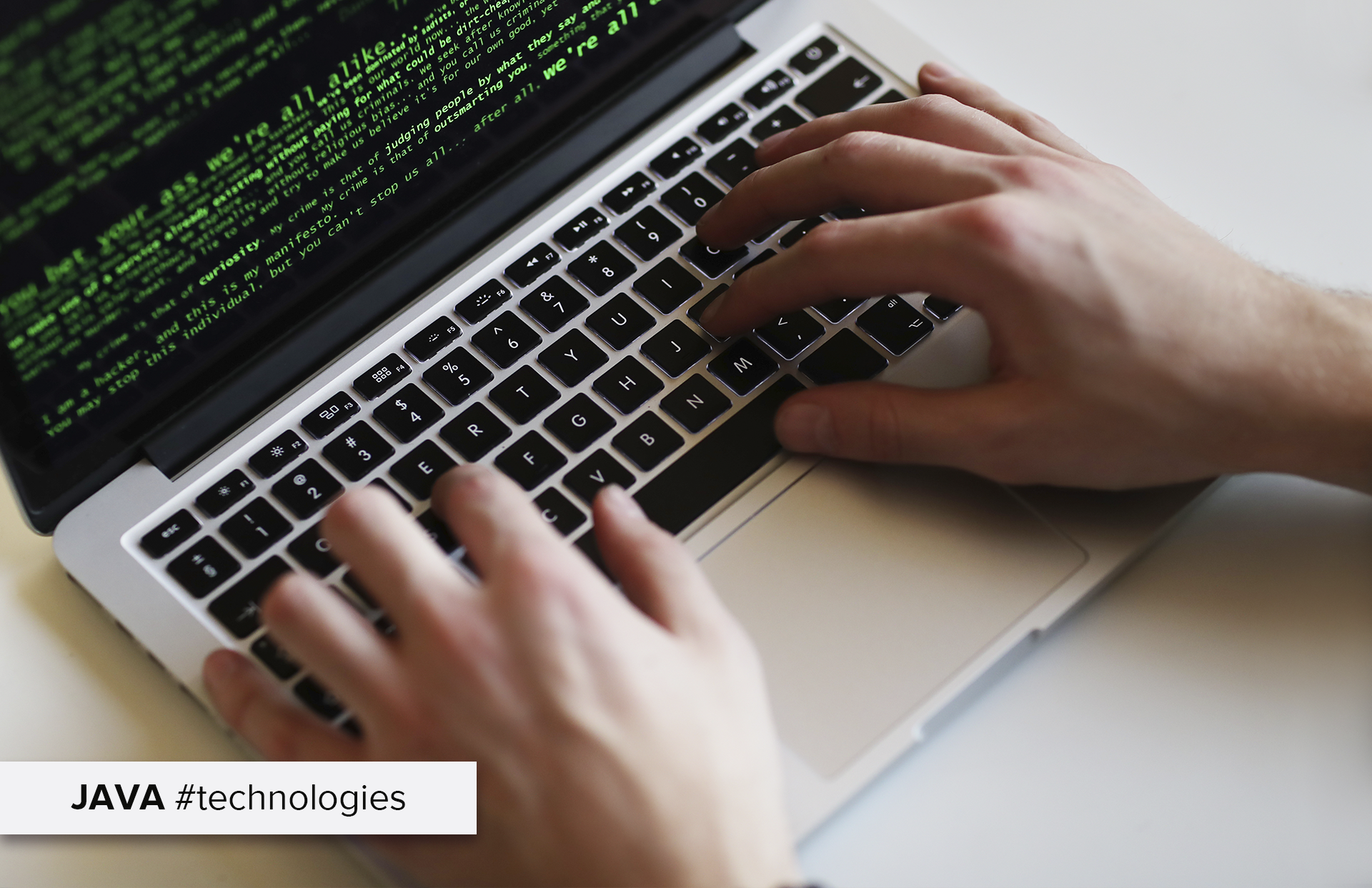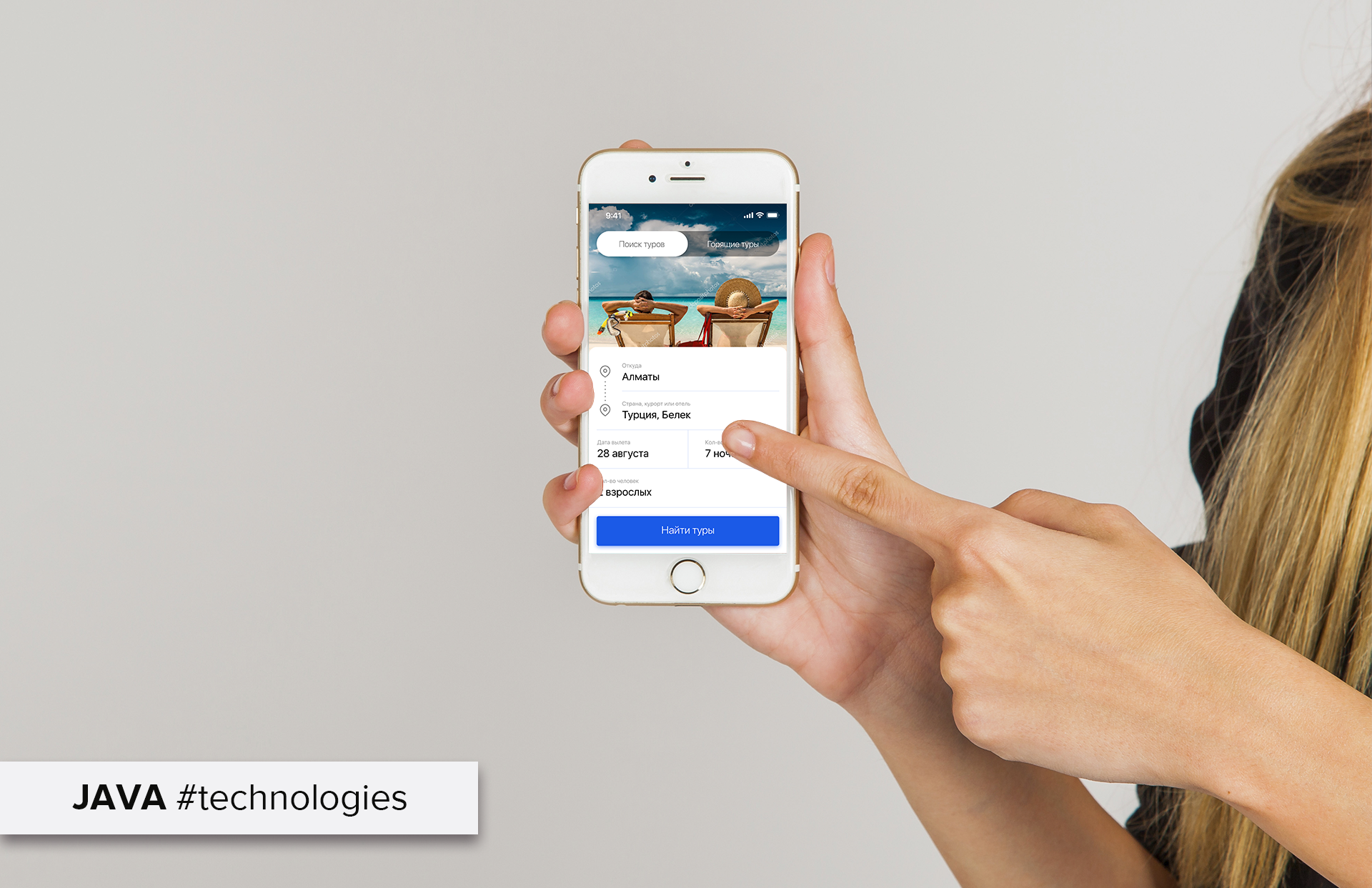In fact, the Java programming language is not native, as it runs on a virtual machine (Java Virtual Machine JVM) on top of the Linux kernel, and not in the smartphone processor itself. But it is the official Android development language and allows you to use native interface elements: navigation, menus, pop-ups, etc. In practice, using Java and the Material Design visual language, another Google development for Android, you can create an application with a familiar, and therefore understandable, interface design. This approach creates a good user experience (UX) - an intuitive interface - and ensures that users understand how to use the application and enjoy it, which means that they will at least give good ratings in the PlayMarket and leave a review, and at most buy a pro version or subscription to the service.

JAVA
Java is the official programming language for Android. It was the first and remains the most widely used, even after Kotlin, Dart, and other languages for this OS appeared. Java can be used to develop programs for smartphones, tablets, laptops, e-books, smartwatches, and many other devices running on Android.
In fact, Java programming is not limited to developing applications for Android. Apache Storm, OpenOffice, Gmail, Atlassian, and many other complex software are written in this language. In addition, the use of Java is appreciated in the financial industry, which requires secure and fast websites for trading systems. Java is suitable for creating networks of cash registers, as well as data modeling, including working with BigData. Minecraft, still the most popular game of all time, is written in Java. However, when it comes to the Java language, everyone thinks of Android development first.
With Java, you can write completely unique programs and realize the most daring ideas. If you want to launch a startup and plan to expand it, or if you already have a ready-made application that can be improved and scaled, Java is the perfect language for both tasks. Your developers will be able to fully utilize the potential of the hardware platform, from the camera to geolocation, as well as implement complex interfaces by connecting the necessary functions from thousands of libraries with functions. At the same time, as a conditionally native application, the Java program for Android will work quickly and respond to interactions.
There are many Java programmers, and most of them wrote Hello World not a year or even five years ago. Your project will be worked on by developers with considerable experience, for whom what is difficult for beginners is a task for a few minutes. Plus, if we talk about which languages java belongs to, it is one of those created for distributed programming. It is convenient for several developers to work with the default code at the same time thanks to the built-in distributed computing mechanism. As a result, your project will be ready to launch several times faster than if you use simpler, but less teamwork-oriented languages.
One of the important things you need to know about Java is that Java programs don't clog up your device's memory. They automatically track objects that are no longer needed by the application and delete them, maintaining the stability and speed of software launch and operation. In languages other than Java and Swift, this feature must be configured manually. Multithreading allows you to share the load on the processor and RAM, which is important for the same performance goals, which is especially important for budget devices.
The first Android smartphone was released by HTC back in 2008, and in 2020, the 11th version of the operating system was installed on new gadgets. Over this time, it has changed significantly, raised generations of developers and gained loyal fans. Java has one of the largest communities on GitHub and Stackoverflow, where developers can always find support from colleagues, answers to questions, and ready-made solutions that can be adapted to your project.
Java is a programming language that is actually owned by Oracal, but is distributed under the GNU General Public License. It can be used by anyone, including for commercial purposes, by paying for updates. Google, in its turn, has developed everything necessary for Java to be used for Android development: Android SDK (Software Development Kit) tools, Android Studio development environment, libraries for all occasions, and several volumes of documentation to help the programmer.
Although Kotlin requires 40% less code than Java to perform the same action, and it is much more stylistically simple, there is a lot in the classic language that its more modern "successor" does not have. You don't have to understand what "static members" or "marked exceptions" are and why they are needed at all to understand that additional features will be useful in your project.
Java is a demanding language with incredible capabilities. It is considered the standard for Android programming, so if you want to create a complex, large-scale, and unusual project that will be available to a large number of potential users, Java is for you.


